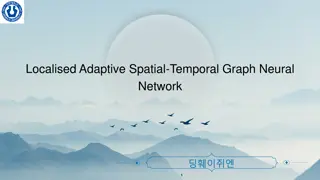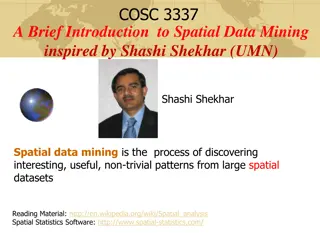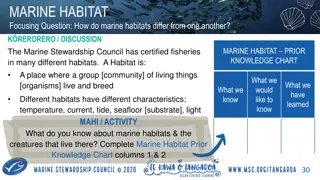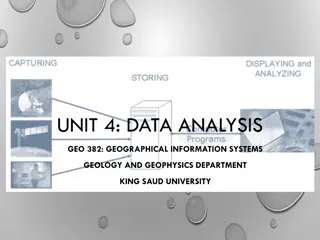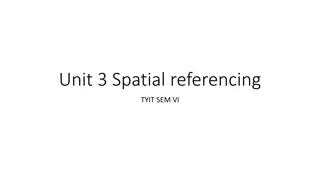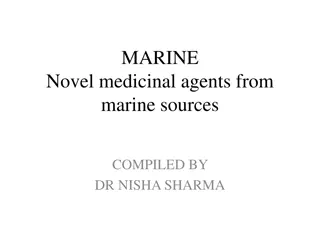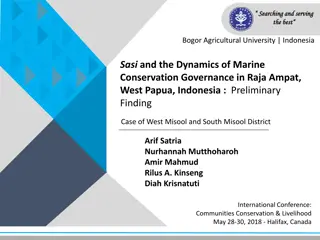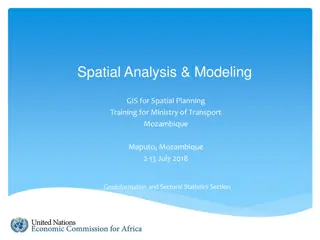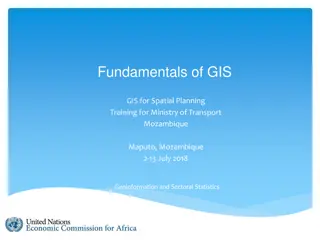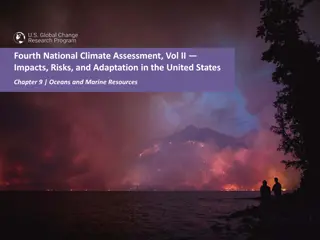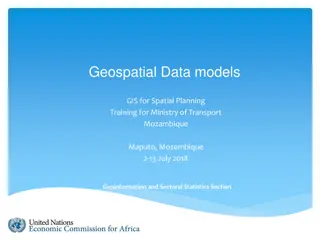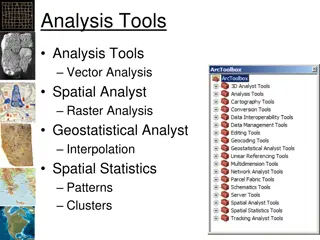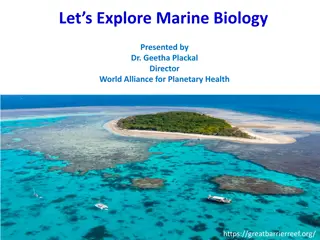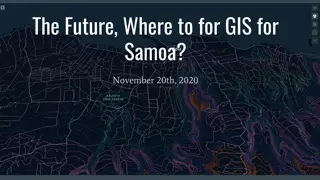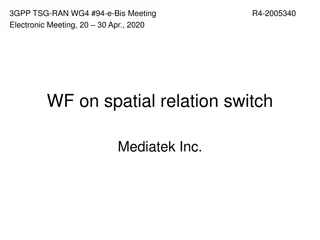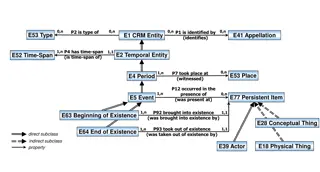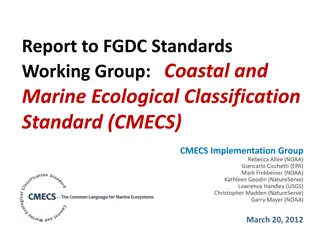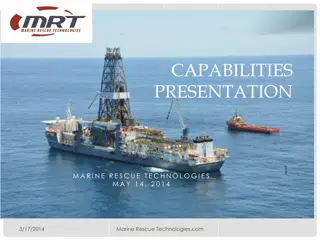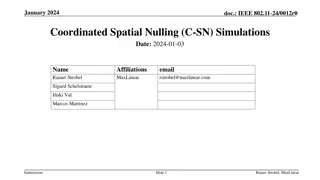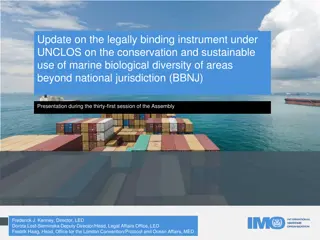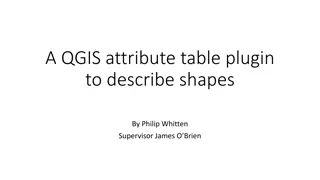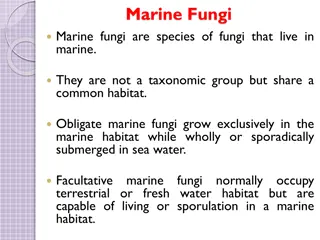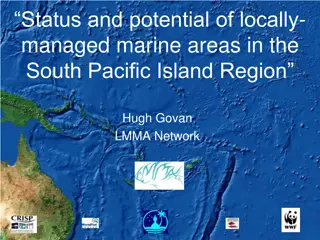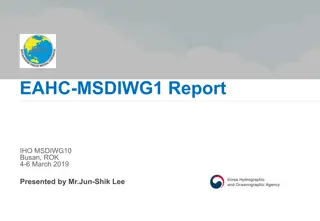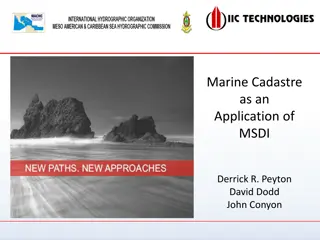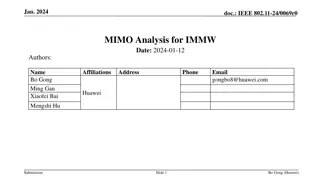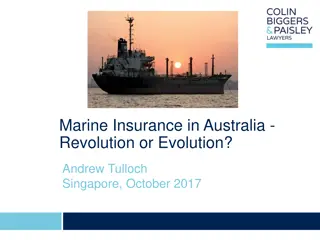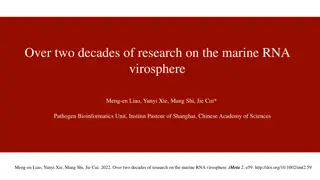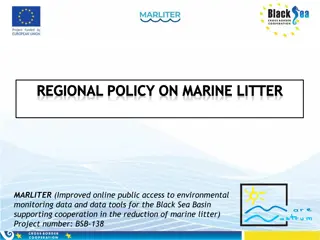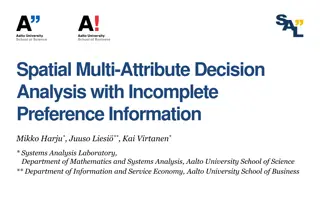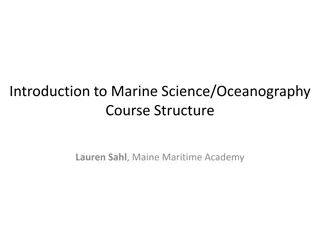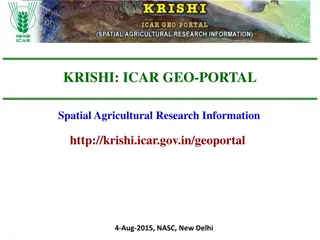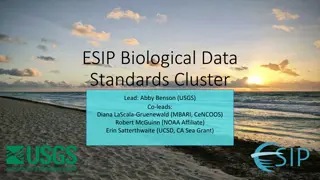Sphinx Marine - Offshore Marine Company in UAE
Sphinx Marine is an offshore marine company based in Ajman, UAE, established in 2006. They specialize in providing maritime navigation, communication, safety equipment, and services in the Gulf Area and Middle East. With a focus on customer-centricity, safety, and quality, Sphinx Marine is ISO 9001:
0 views • 20 slides
fMRI Coregistration and Spatial Normalization Methods
fMRI data analysis involves coregistration and spatial normalization to align functional and structural images, reduce variability, and prepare data for statistical analysis. Coregistration aligns images from different modalities within subjects, while spatial normalization achieves precise anatomic
3 views • 35 slides
Localised Adaptive Spatial-Temporal Graph Neural Network
This paper introduces the Localised Adaptive Spatial-Temporal Graph Neural Network model, focusing on the importance of spatial-temporal data modeling in graph structures. The challenges of balancing spatial and temporal dependencies for accurate inference are addressed, along with the use of distri
3 views • 19 slides
Introduction to Spatial Data Mining: Discovering Patterns in Large Datasets
Spatial data mining involves uncovering valuable patterns from extensive spatial datasets, offering insights into historical events, environmental phenomena, and predictive analytics. Examples range from analyzing disease outbreaks to predicting habitat suitability for endangered species. The applic
1 views • 20 slides
Understanding Spatial Database Systems: An Overview
This presentation by Xiaozhi Yu introduces the fundamentals of spatial database systems, covering topics such as spatial data types, relationships, system architecture, modeling, and organizing underlying spaces. It delves into the importance of integrating geometry into DBMS data models, spatial in
1 views • 30 slides
Understanding Marine Habitats and Their Diverse Ecosystems
Marine habitats vary in characteristics such as temperature, current, tide, seafloor substrate, and light, influencing the communities of organisms that live within them. The certification of fisheries by the Marine Stewardship Council ensures minimal impact on local habitats, emphasizing the import
0 views • 6 slides
Understanding Spatial Analysis in GIS for Effective Decision-Making
Spatial analysis in GIS involves modeling geographic problems, processing data, and exploring results to understand spatial relationships, patterns, and suitability for various purposes. GIS tools offer unique capabilities for handling geographically referenced data, data entry, storage, manipulatio
1 views • 21 slides
Understanding Spatial Referencing Systems for Mapping
Spatial reference systems play a crucial role in defining geographic parameters and coordinate systems for mapping. They consist of components like orientation, latitude, longitude, and elevation, which help in representing spatial properties on maps. Reference surfaces such as the Geoid and ellipso
3 views • 13 slides
Marine Novel Medicinal Agents from Marine Sources Compiled by Dr. Nisha Sharma
Oceans, covering more than 70% of the Earth's surface, harbor a plethora of invertebrates and algal species, providing a rich source of medicinal compounds. Marine organisms have yielded commonly used drugs like shark and cod-liver oils, sodium alginate, agar-agar, and chitin. Various classification
1 views • 9 slides
Marine Conservation Governance in Raja Ampat, West Papua, Indonesia
Explore the dynamics of marine conservation governance in Raja Ampat, West Papua, Indonesia, with a focus on Sasi practices and the preliminary findings in the West Misool and South Misool districts. Discover the potential resources in Raja Ampat and the various types of marine conservation areas in
0 views • 22 slides
Spatial Analysis & Modeling for Spatial Planning Training in Maputo, Mozambique
Explore spatial analysis techniques for efficient route planning, site selection, pattern identification, and value prediction in the context of spatial planning. Learn about surface modeling, relationships among features, and the importance of spatial modeling in addressing geographical problems.
0 views • 27 slides
Understanding the Components of GIS for Spatial Planning
A geographic information system (GIS) is a powerful tool for capturing, storing, analyzing, and presenting spatial data. This training program explores the fundamentals of GIS, including software and hardware components, data considerations, and the importance of people and policies in utilizing GIS
4 views • 16 slides
Impacts of Climate Change on Oceans and Marine Resources in the United States
The Fourth National Climate Assessment highlights the disruption of ocean ecosystems due to increasing global temperatures, leading to loss of habitats, changes in species composition, and food web structure. Marine fisheries face high risks from climate-driven changes, impacting distribution, timin
1 views • 10 slides
GIS Data Models for Spatial Planning Training in Maputo, Mozambique
Explore the concepts of GIS data models including vector vs. raster, spatial relationships, spatial operations, and representation of real-world entities in a spatial database. Understand how spatial data models are used to manipulate spatially-referenced information and define the spatial location
1 views • 32 slides
Understanding Spatial Autocorrelation in Geostatistical Analysis
Explore the concept of spatial autocorrelation, its implications in geostatistical analysis, and the importance of detecting and interpreting it correctly. Learn about auto-correlation, signal components, correlation significance, and measuring autocorrelation using tools like Moran's I. Gain insigh
0 views • 12 slides
Marine Biology: Importance, Scope, and Responsibilities
Exploring the realm of marine biology reveals its crucial role in understanding and preserving marine ecosystems under threat. This field offers diverse career opportunities, from research to conservation efforts. Marine biologists play a pivotal role in studying, monitoring, and protecting marine l
0 views • 14 slides
Future Directions for GIS in Samoa
Enhancing GIS practices in Samoa involves establishing a Samoa GIS User Group, improving spatial data management, developing a national spatial data infrastructure framework, and implementing GIS applications in various sectors like emergency response, public access, and natural resource management.
2 views • 12 slides
Spatial Relation Switching Requirements in 3GPP NR RAN Plenary Meeting
The document discusses various spatial relation switching requirements for uplink scenarios in the 3GPP NR RAN Plenary Meeting. It covers agreement points related to UL SRS, PUCCH, P-SRS, and DL-RS, defining delay requirements and known conditions for spatial relation switching. The agreements provi
0 views • 11 slides
Nautilus Marine Insurance Australian Sailing Program Overview
Nautilus Marine Insurance offers a comprehensive suite of insurance products tailored for Australian Sailing clubs, providing top-notch claims services, expert staff, and innovative solutions. With a strong focus on underwriting and customer service, Nautilus Marine is a trusted partner for marine i
0 views • 10 slides
Understanding Temporal and Spatial Information Models
This content delves into the intricacies of temporal and spatial information models, covering concepts such as existence, presence, and spatiotemporal relationships. It explores how entities are identified, events are witnessed, and durations are defined within these models. The interplay between ti
3 views • 9 slides
Coastal and Marine Ecological Classification Standard (CMECS) Implementation Progress
The report highlights the development, timeline, objectives, and importance of the Coastal and Marine Ecological Classification Standard (CMECS) along with its implementation progress. It discusses the need for a national standard for classifying coastal and marine habitats, the objectives of CMECS,
1 views • 38 slides
Marine Rescue Technologies: Innovating Ocean Safety Solutions
Marine Rescue Technologies (MRT) is a leading provider of maritime survivor locating devices, retrieval systems, and rescue products. Founded in 1993, MRT serves a wide range of clients in the oil & gas industry, commercial marine sector, and maritime agencies worldwide. Their products cater to the
3 views • 15 slides
Coordinated Spatial Nulling (C-SN) Simulations in IEEE 802.11-24/0012r0
The document discusses the concept of Coordinated Spatial Nulling (C-SN) in IEEE 802.11-24/0012r0, focusing on spatial nulling feedback, synchronization needs, advantages of partial nulling, and comparison of half-coordinated versus fully coordinated scenarios. Simulation results are presented, anal
0 views • 19 slides
Update on Legally Binding Instrument under UNCLOS for Marine Biological Diversity Conservation
United Nations General Assembly is developing a treaty under UNCLOS for conservation of marine biological diversity in areas beyond national jurisdiction since 2015. The objective is sustainable use of marine genetic resources, area-based management tools, environmental impact assessments, capacity-
0 views • 18 slides
Tracking Marine Fauna: Examples from ProDelphinus Peru Leatherback Tracking Project
ProDelphinus is dedicated to conserving endangered marine fauna like sea turtles, marine otters, cetaceans, seabirds, and sharks. They use the Darwin Core Archive format and collaborate with Marine TLO for ontology mapping. The project involves tracking leatherback sea turtles and making occurrence
1 views • 8 slides
Enhancing Spatial Data Analysis in QGIS
Explore the integration of relational databases with QGIS to facilitate efficient spatial data analysis. Discover the importance of recognizing spatial relationships within data sets and the solutions to enhance QGIS for relational datasets. Overcome challenges and delve into the intersection and su
0 views • 25 slides
Overview of Marine Fungi and Their Habitats
Marine fungi are diverse species that inhabit marine environments, with some being obligate marine fungi while others can adapt to various habitats. They play essential roles in marine ecosystems by decomposing organic matter and interacting with other organisms. Factors affecting their distribution
2 views • 13 slides
Dive into the Marine Creatures Memory Game and Fun Facts
Embark on an oceanic adventure with a marine creatures memory game featuring two challenging levels. Test your memory skills by matching pairs of marine animals while uncovering fascinating facts about these underwater wonders. Discover unique traits of various creatures like clownfish, dolphins, an
1 views • 5 slides
Evolution of Locally Managed Marine Areas in the South Pacific Island Region
This content discusses the status, potential, and objectives of Locally Managed Marine Areas (LMMAs) in the South Pacific Island Region, highlighting the evolution from traditional purposes to modern conservation and fisheries management practices. It also provides insights into the inventory of Mar
0 views • 27 slides
Marine Spatial Data Infrastructures Report Overview
The report provides insights into the activities and discussions at the EAHC-MSDIWG1 meeting held in Busan, ROK. It outlines the key agenda items, country reports on national MSDI, membership details, importance of MSDI, and trends in marine spatial data. The report emphasizes the significance of ma
0 views • 11 slides
Marine Cadastre as an Application of MSDI
Marine Cadastre is discussed as an application of Marine Spatial Data Infrastructure (MSDI) in this content. It explores what an MSDI could and should be, emphasizing spatial data management systems' crucial role in providing access to information and analysis products. The discussion covers the pil
0 views • 20 slides
Analysis of MIMO for IMMW Transmission in IEEE 802.11-24
Proposal discusses the suitability of MIMO for IMMW transmission under different scenarios. The analysis focuses on the number of spatial streams based on channel rank and quality, recommending dual-polarization for LOS paths supporting 2 spatial streams and spatial separation for larger devices sup
0 views • 16 slides
Evolution of Marine Insurance in Australia: A Review of Historical Context and Reform Provisions
Exploring the evolution of marine insurance in Australia, this review delves into historical frameworks such as the Marine Insurance Acts of 1906 and 1909, as well as modern reforms influenced by the United Kingdom. Key principles adopted by the MLAANZ Committee and current recommendations surroundi
0 views • 33 slides
Decades of Marine RNA Virosphere Research
Research spanning over two decades has delved deep into the marine RNA virosphere, shedding light on the complex marine ecosystem and the characteristics of RNA viruses. Discoveries in deep marine virus taxonomy have led to significant taxonomic changes and advancements in virus classification and g
0 views • 10 slides
European Union Regulations and Directives on Marine Litter and Waste Management
Marine litter poses a significant threat to the marine environment, prompting the adoption of various international, regional, and national instruments to address the issue. Key directives such as the Marine Strategy Framework Directive and Waste Framework Directive set out measures to achieve good
1 views • 16 slides
Spatial Multi-Attribute Decision Analysis with Incomplete Preference Information
In this study by Mikko Harju, Juuso Liesi, and Kai Virtanen from Aalto University, the focus is on spatial decision analysis for scenarios where decision alternatives have varying consequences across a geographical region. The research delves into the significance of spatial value functions in repre
0 views • 19 slides
Exploring Marine Science and Oceanography Course Structure
This marine science and oceanography course dives into the traditional structure of understanding oceans, from Earth-building processes to human interactions. It also introduces a unique approach focusing on the oil/plastics cycle, engaging students in active learning and discussions on geoethics. T
0 views • 11 slides
ICAR KRISHI Geo-Portal: Spatial Agricultural Research Information
ICAR KRISHI Geo-Portal is a digital platform aiming to facilitate spatial agricultural data generation, compilation, visualization, and analysis. It hosts spatial databases, provides map services, and allows data sharing across platforms. The portal, developed using open-source technologies, offers
1 views • 32 slides
Understanding Spatial Relationships in Data Modeling
Explore the concept of spatial relationships within data modeling, focusing on the fully-articulated paths encompassing E4 Period, E53 Place, and E18 Physical Thing. Delve into the implications of properties like P161 has spatial projection and P89 falls within, examining how places are uniquely def
0 views • 7 slides
Advancing Biological Data Standards for Marine Research
Discussion on biological data standards for marine research, challenges faced, existing standards, and the need for guidance and community building. Goals include maximizing data relevance for biodiversity studies. Ongoing work involves developing a primer for data managers unfamiliar with biologica
0 views • 7 slides


